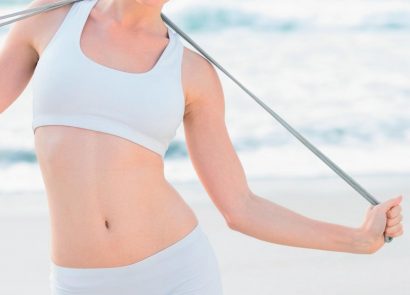Anaemia is a common condition, with recent studies showing that 29 percent of non-pregnant women and 38 percent of pregnant women are affected by it. Menstruation can play a huge part in low blood iron levels, which can leave you feeling lethargic, weak, dizzy and short of breath. “The daily recommended intake of iron for men is 8.7mg, compared to 14.8mg for women of menstruating age,” says Dr Dawn Harper, TV medic (drdawn.com). “Studies have shown that women with low levels find immoderate movement more difficult. Intensive exercise, such as endurance training, can actually deplete iron levels as part of an inflammatory process.”
So, how can we adjust our diets accordingly?
Food
There are plenty of iron-rich foods on the market, but the ones to watch out for include pumpkin seeds, red meat, leafy green vegetables, dried fruit and legumes. “Humans absorb iron better from animal sources than they do from plants,” explains Dr Dawn. “We assimilate anything between five to 35 percent of the iron we eat. Dairy products, antacids and tannins in tea and coffee may reduce absorption, while vitamin C is proven to aid the process.
Rest
During exercise, blood is diverted away from the gastrointestinal tract toward muscles, to allow for aerobic activity, so it’s important to leave time for recovery after a period of intense movement to encourage our bodies to soak up as much as possible.”
Supp it up
Have you been worried about consuming a surplus of iron? Supplements are often used as an easy solution to deficiencies. In theory, we should be able to keep optimum levels up with a balanced diet, but heavy periods, full-on exercise regimes and vegan eating habits can alter our absorption of this magic mineral. It’s also important not to take iron supplements beyond the dosage that your GP or pharmacist advises, as this can lead to joint pain, irregular heart rhythms, hair loss and other serious health issues. In short, it’s vital to find a balance, especially if you’re partial to long workouts or experience heavy periods, particularly prior to menopause.






















